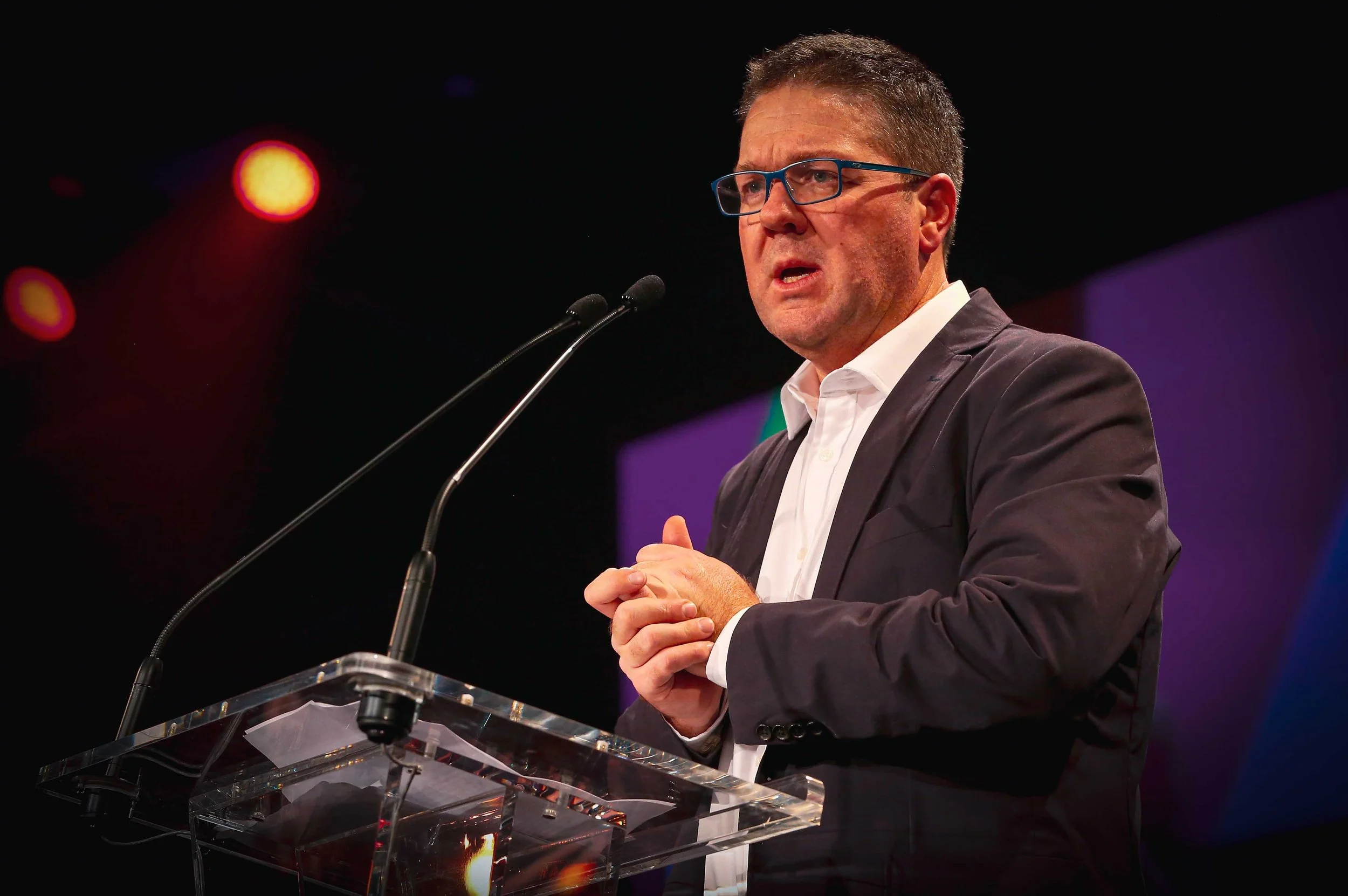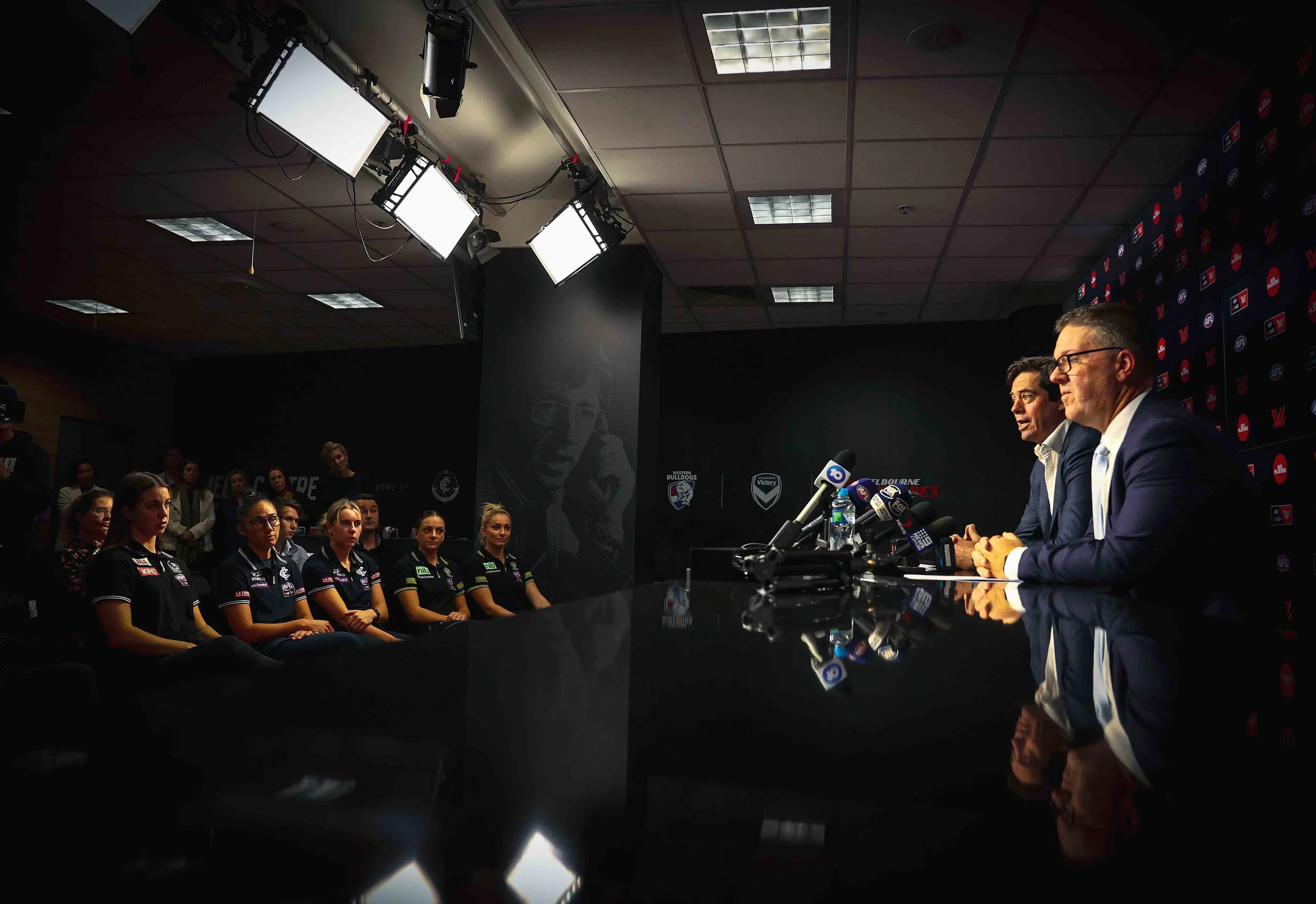
Episode #026
Paul Marsh
‘Carrying the weight forward’

Episode #026
Paul Marsh
‘Carrying the weight forward’
Listen and Subscribe
Carrying the weight forward
"I don't have to have all the answers, but part of my job is to find them."
The phone rings in the middle of the night.
Bombs are exploding near the hotel where the Australian cricket team is staying in Pakistan.
They want out.
Now.
Paul Marsh, just 33 and weeks into his role as CEO of the Australian Cricketers' Association, has no playbook for this moment. No precedent. No answers. Just the weight of responsibility for some of Australia's most recognisable athletes, half a world away, in immediate danger.
"I felt like I was failing," he tells me, the memory still sharp decades later. This is where leadership begins - not with answers, but with the courage to find them.
Finding the Answers
Leadership is rarely about having the answers—it's about finding them.
Paul, son of Australian cricket great Rod Marsh, a childhood hero of mine, and just about every other cricket lover of my generation, grew up ‘In the arena’.
He absorbed both triumph and heartbreak, and from an early age, he saw sport's unforgiving nature.
He watched his father navigate the introduction of World Series Cricket (WSC), which changed the game forever and, in time, for the better. But this was anything but the sentiment and emotion of the time. Paul watched on as people turned their backs on his dad in supermarkets, witnessing how heroes become villains when they challenge the establishment.
And when his time in the game was over, he lived the experience of an icon finding a new identity beyond the boundary.
Trying to find his own answers in his willingness to sit with the unknown.
"Be smart enough to know when you're not smart enough," his predecessor Tim May had told him. It became Paul's north star. His job was never to know everything, but to create the space, gather the right people, and find a way forward.
The courage to find answers, Paul would learn, also meant the courage to get them wrong.
Making Mistakes
In elite sport, mistakes are inevitable, and inside the organisation, seen as an opportunity to grow and to learn, but often judged harshly by those who sit in judgement.
As tough as the lesson in Pakistan was, Paul turned crisis into system. Security consultants were engaged. Tours were cancelled when necessary. Years later, when the hotel his team would have stayed in was levelled by a suicide bomber, those systems likely saved lives.
Later, leading the AFL Players' Association, he experienced the pain of missteps in negotiating for AFLW players. A deal fell short of expectations, and trust was tested. The easy path would have been blame, and there is always something or someone to blame, the AFL, the timing, the complexity etc etc.
Blame attracts a crowd, absolves responsibility, but offers no future whatsoever.
Instead, Paul brought it into the room and the challenge. He commissioned independent reflection, listened deeply, rebuilt faith, and in time, delivered a landmark deal that doubled AFLW wages and paved the way for the first joint CBA.
For Paul, mistakes are not endings, but beginnings: "Learn from the mistake, get better. That's all you can ask."
Leadership in Ambiguity
Negotiation, at its heart, is less about winning than about holding the line between competing truths.
Paul has led some of the most complex bargaining tables in Australian sport—often with players seen as "overpaid and greedy" on one side and powerful institutions on the other.
He reframed the challenge into three clear W's:
wages
workplace
wellbeing
His job wasn't to solve one at the expense of another, but to keep all three in balance, often under fire.
At times, it meant being cast as the villain in the public eye. At others, it meant carrying the weight of a community through uncharted crises, like the COVID-19 shutdowns.
When 800 players lit up a Zoom chat in fury about ‘hub’ life, he broke the shock down into conversations, solving one problem at a time. Calm. Brave. Humble. Compassionate. These were the qualities the moment expected of him, and the qualities he modelled.
Paul Marsh's story is one of never pretending to have the answers, but always being prepared to find them. Of making mistakes, and refusing to waste them. Of carrying the weight forward, not just for today's players, but for the ones yet to come.
Notebook ready.
Play on!
Cameron Schwab
Video Shorts - Some key lessons from the podcast
Leadership is the difference maker
To embrace the expectations of your role, welcome the responsibilities and pressures as a privilege, a right you have earned, and be energised by the opportunities they provide.







